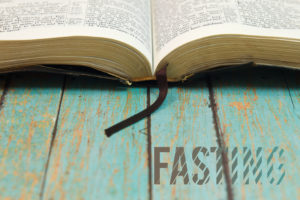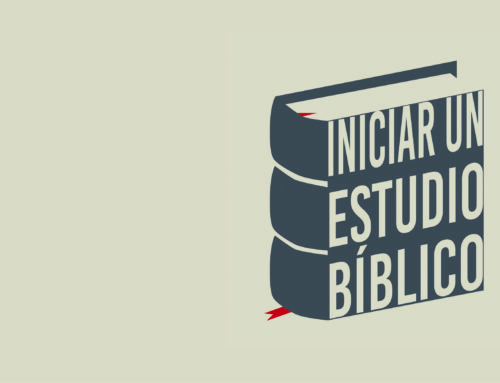 Obedience to God
Obedience to God
When you fast with an open heart and ear to God and deny yourself of what typically fuels you, all trappings are stripped away and there is a deeper focus on the only true Source of fuel. As the lack of food (or whatever chosen resource you are fasting from) causes physical (mental or emotional) weakness, it is a reminder of our limitations and the limitless power of God. The outcome is a deeper desire to obey in purity and clarity of heart and mind.
“Well, now is the right time to listen, the day to be helped. Don’t put it off; don’t frustrate God’s work by showing up late, throwing a question mark over everything we’re doing. Our work as God’s servants gets validated—or not—in the details. People are watching us as we stay at our post, alertly, unswervingly… in hard times, tough times, bad times; when we’re beaten up, jailed, and mobbed; working hard, working late, working without eating; with pure heart, clear head, steady hand; in gentleness, holiness, and honest love…” 2 Corinthians 6:4-6 (MSG)
Humbling of Self
Physically speaking, fasting from food (or anything that is embedded in your present way of life) causes you to take notice of that which has control over you. Once all the “props” are taken away, there is a process of humility being poured into you and there is an acknowledgement of God’s omniscience to which there is willing submission.
“Be willing to be made low before the Lord and he will exalt you!” James 4:10 (TPT)
Overcoming Temptation
Temptations tend to come when we are most vulnerable. After Jesus was led by the Spirit to fast in the desert for 40 days He was tempted by the devil. Our adversary is well-versed in our most vulnerable areas of life. Fasting places us in a physically defenseless position and opens us to leaning heavily on God to overcome our temptation while we are susceptible.
“Jesus, full of the Holy Spirit, left the Jordan and was led by the Spirit into the wilderness, where for forty days he was tempted by the devil. He ate nothing during those days, and at the end of them he was hungry. The devil said to him, “If you are the Son of God, tell this stone to become bread.” Jesus answered, “It is written: ‘Man shall not live on bread alone.’” Luke 4:1-4 (NIV)
Purification/Repentance
Jonah was sent to call the wayward people of Nineveh to repent of their sinful way of living. His words convicted their hearts and a sign of their desire to repent and be pure was to fast.
“But the very first day when Jonah entered the city and began to preach, the people repented. Jonah shouted to the crowds that gathered around him, “Forty days from now Nineveh will be destroyed!” And they believed him and declared a fast; from the king on down, everyone put on sackcloth—the rough, coarse garments worn at times of mourning…..And when God saw that they had put a stop to their evil ways, he abandoned his plan to destroy them and didn’t carry it through.” Jonah 3:4,5 & 10 (TLB)
Demonstrating Agreement with God
Throughout our lives there will be moments of struggle for control. There are circumstances that will cause us to call out to Christ for him to take control. Fasting is an intentional way to show desire for being in harmony with God’s power and control over us.
“But he said to me, “My grace is sufficient for you, for my power is made perfect in weakness.” Therefore, I will boast all the more gladly about my weaknesses, so that Christ’s power may rest on me. That is why, for Christ’s sake, I delight in weaknesses, in insults, in hardships, in persecutions, in difficulties. For when I am weak, then I am strong.” 2 Corinthians 12:9-10 (NIV)
Direction from God
Those of the spiritual mindset use prayer and fasting to bring clarity in decision making. This is a choice to “center down” in any way necessary to receive direction from God. Those who helped in the establishment of the early church are powerful examples of reliance on God through prayer and fasting for discernment.
“Paul and Barnabas appointed elders for them in each church and, with prayer and fasting, committed them to the Lord, in whom they had put their trust.” Acts 13:3 (NIV)
Guidance in Crisis
A follower of Christ rarely has difficulty knowing right from wrong; it is the good and best when discernment is needed. Oftentimes fasting can help bring heightened discernment especially in moments of crisis.
When the Jews were being plotted against by evil Haman, Esther sent a message to her uncle Mordecai to call on all the Jews to fast and pray for three days for guidance as she went before the king and disclose her nationality and the plot against her people.
“Then Esther sent this reply to Mordecai: “Go, gather together all the Jews who are in Susa, and fast for me. Do not eat or drink for three days, night or day. I and my attendants will fast as you do. When this is done, I will go to the king, even though it is against the law. And if I perish, I perish.” Esther 4:15-16
Crucify the Flesh
Fasting should be that which exposes anything contrary to God and causes us to oppress the ungodly and brings purification. If fasting doesn’t bring about change in what we want, think or feel, there is more crucifying of the flesh that is needed.
“Well, here’s why: “The bottom line on your ‘fast days’ is profit. You drive your employees much too hard. You fast, but at the same time you bicker and fight. You fast, but you swing a mean fist. The kind of fasting you do won’t get your prayers off the ground. Do you think this is the kind of fast day I’m after: a day to show off humility? To put on a pious long face and parade around solemnly in black? Do you call that fasting, a fast day that I, God, would like?” Isaiah 58:5 (MSG)




